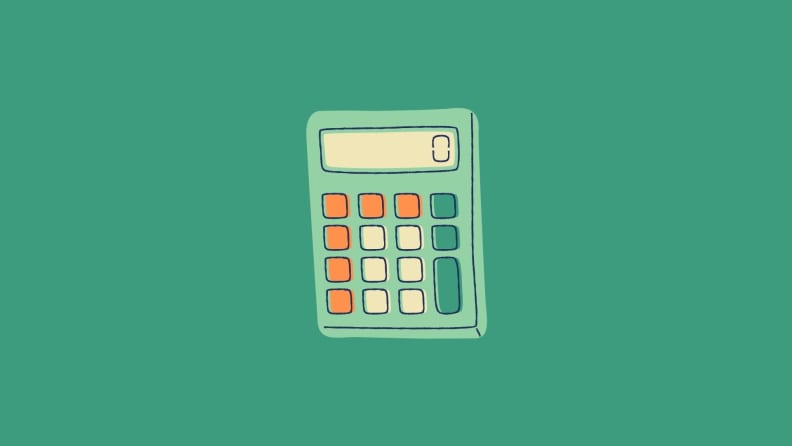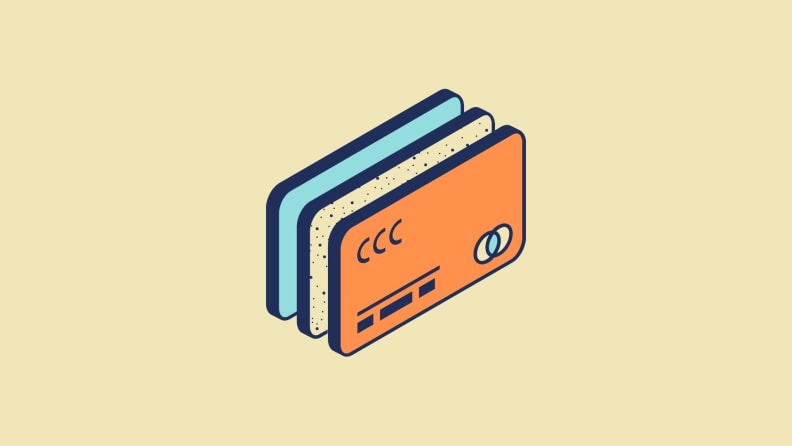 Credit:
Getty Images / LaylaBird
Credit:
Getty Images / LaylaBird
Recommendations are independently chosen by Reviewed's editors. Purchases made through the links below may earn us and our publishing partners a commission.
In the past year, I’ve purchased a lifetime supply of perfume samples, acquired an expensive Bombas sock habit, and am now a proud owner of a meat thermometer—though I have no plans to ditch my vegetarian diet.
My increased spending is partly an occupational hazard of working at a company that tests the best products. But like a lot of the American workforce that was fortunate to stay employed throughout the pandemic, I’ve spent a whole lot more time surfing the net—and pressing that “add to cart” button.
“We’re not going out for dinner, drinks, or traveling so much. You’re seeing some people save tons and tons of money right now, or spending is going up in other areas—and a lot of it is online shopping,” Rachel Rabinovich says. The certified financial planner has seen this increase in spending crop up with her clients at Ellevest, an investment platform geared toward women.
Luckily, she shares some expert tips to shop smarter online, from landing on a safe-to-spend budget to fine-tuning how we make all of our purchasing decisions.
Calculate a weekly shopping budget

Ellevest money coach Rachel Rabinovich talks to clients about a guilt-free spending allowance.
As a money coach, Rabinovich talks to her clients about a one-number budgeting system: “It’s a number you have on a weekly basis that you know you can spend any way you want. It’s like giving yourself an allowance.”
Do the math to cover your monthly housing costs, bills, savings, and other necessities. (You can use the 50/30/20 budget rule as a starting point.) From there, land on a safe number for discretionary spending. By breaking it down into a weekly cap, it’s easier to keep track of—and it also makes you check in on your finances more frequently. If you need help separating these funds, Rabonvich recommends opening a checking account specifically for discretionary spending.
Importantly, Rabonvich stresses that this set-aside amount is meant for guilt-free spending. “If you want to spend [the monthly total] all in one week on Amazon, go for it,” she says. “We need to be able to enjoy our money. Retail therapy is fine as long as you keep some guardrails around how much you spend.”
Monitor your credit card usage

If you do your online shopping with a credit card, check in on your statements often.
Do you tend to shop with a credit card to rack up rewards? Rabinovich suggests paying the balance weekly to check in on the expenses and settle up. You may even use a separate credit card for these purchases to avoid a scavenger hunt on your bank statement. Another perk: Frequent payments keep your utilization ratio low, which can help maintain a healthy credit score.
Set some parameters

Bring a little mindfulness to your online purchases.
Establishing a few ground rules may limit your spending. You might decide to cap your online shopping by setting a 20-minute timer, or stick to perusing during your Friday lunch breaks.
Here’s one of my personal tricks: I am a sucker for makeup and skincare products. It’s all too easy for me to add this, that, and another thing to my cart. So I recently made a list of all the products I’ve bought, tried, and loved, and certain items that I’ve yet to come across the holy grail. Before I hit purchase, I reference the list. And I’m reminded that I already use a moisturizer (thank you, Doctor Rogers!) that I’m happy with. A mascara, on the other hand, is fair game.
Look for deals, and know when is the right time to buy

When you can, plan your online purchases for maximum savings.
Another parameter Rabinovich abides by? “Generally speaking, I try to avoid buying at full retail unless it’s something I absolutely have to have at that time and I have no choice,” she says. “I even bought my mother-of-the-bride dress at a discount because I gave myself the time.”
When your refrigerator suddenly goes kaput, there’s not much wiggle room. But you can mark your calendars with tentpole sales. If you’re looking to replace your mattress in the near future, do your research now and keep an eye out during Memorial Day or Labor Day to strike while the sales are hot. The same goes for TVs, vacuums, and appliances, as these items tend to go on sale at regular times throughout the year.
Identify your financial values

Take some time to think about how you actually want to spend your money.
Rabinovich stresses that this is a great way to fine-tune your spending. “Identify your values and use those as your North Star,” she says. “Remember why you're saving for things and be able to articulate them.”
At Ellevest, she leads a small group session to sort out what matters most to attendees and how to apply that to everyday financial decisions. (The 90-minute workshop is open to non-members for $75.) “Taking some time and thinking about what your core values are, that can certainly allow you to say to yourself, ‘You know what? This expense might have some meaning to me, it might bring me some joy and satisfaction.’ ” Rabinovich says. “Or does it really not mean something? You want to distinguish the two.”
She points to that pesky latte that financial folks always seem to harp on. You could be making a daily stop at the local coffee shop out of habit or convenience. But maybe it aligns with your wish to support small businesses, or briefly chatting with neighbors gives you a sense of community. Take the time to figure out what you want to do with your hard-earned cash, and you’ll have a better idea of how your spending habits stack up.
Use visual reminders

Rabinovich says savings thermometers are powerful motivators.
It could be time for some old-school collaging. “I know vision boards and debt and saving thermometers are hokey-sounding, but they’re powerful motivators,” Rabinovich says of using visual aids to track financial goals.
“When I was saving for a house, I kept a picture of one on the refrigerator. It was always there, so it was like, ‘Oh yeah, this is what this is all about, and I'll get there.' ” Once you’ve narrowed in on your financial values, seeing something can be another reminder to keep you on track.
Enter your credit card information manually

Take it easy on your budget by deleting your stored credit card information.
Retailers gladly eliminate barriers to get customers to follow through with a purchase. Most of us have given into Amazon 1-Click. Paypal “lends a hand” by sending a code via text message to avoid dredging up your password.
With these features, “it’s just so easy not to think about what you’re doing,” Rabinovich says. Introduce another step by manually entering your credit card information. “Having to make that extra move to go and pull out your wallet forces you to take some space and gives you a moment to think.”
Pay for shipping, when it makes sense

Sometimes paying for shipping won't send you over your budget.
Yep, sometimes you gotta spend money to save money. How many times do you find yourself $10 dollars away from complementary shipping, so you hunt for another item to toss in your cart? While it seems smart, it can lead to spending more than if you had simply ponied up for the postal charge.
Unsubscribe, unfollow, delete

Play defense when it comes to tempting emails, mobile apps, and social media feeds.
Not in the right headspace? Remove tempting shopping apps from your phone’s homepage or even temporarily delete them. Rabinovich admits that swiping by Zappos is her personal weakness.
To go a step further, consider taking yourself off mailing lists or muting Facebook or Instagram feeds. “Social media and targeted email have been shown to increase consumer spending,” Rabinovich says. “They know exactly what you want.”
And don’t let the fear of missing out on a killer sale stop you. There’s always the option to resubscribe when getting daily reminders won’t send you down a wormhole.



